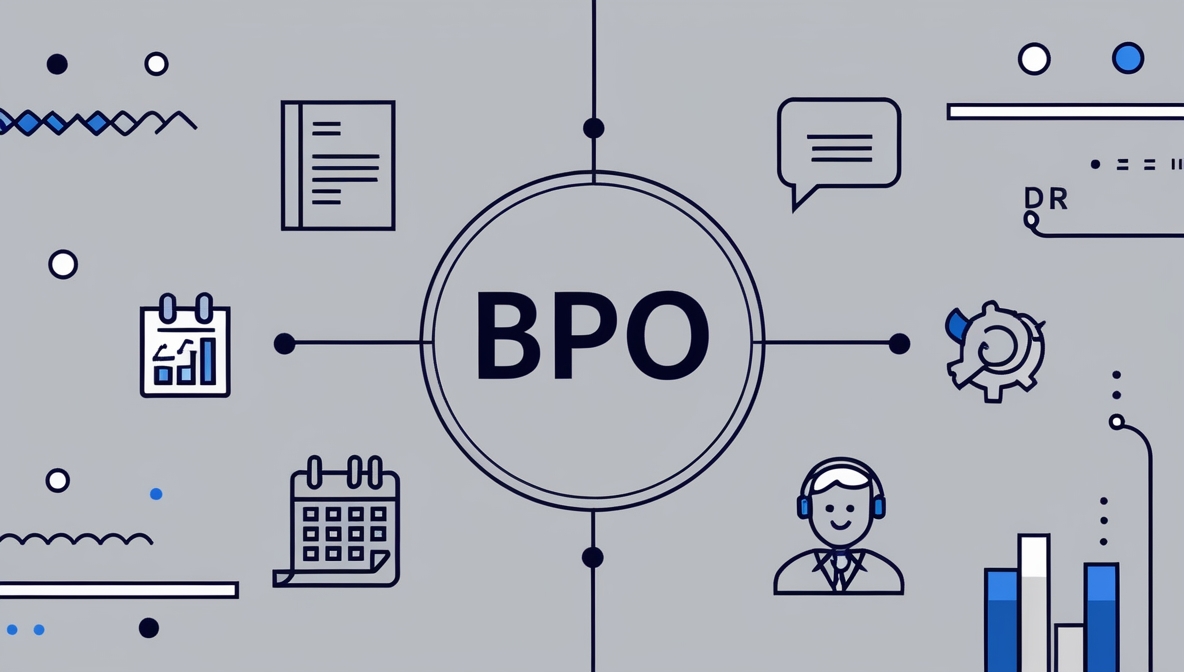This research study explores best practices that make outsourcing deliver business value beyond cost savings. Excellent reference for the CIO to understand the strategic implications of outsourcing and implement this discipline to create superior business value.
Business process outsourcing (BPO) is no longer in its nascent stages; it has firmly established itself as a staple in the management toolkit across a myriad of industries and companies. As it approaches its third decade, the expectations and challenges associated with BPO have matured significantly.
In its early days, the goals of BPO were relatively straightforward. Companies sought efficiency, streamlined operations, and, most importantly, a reduction in operating costs. However, the sands are shifting. Today, with BPO seeping deeper into organizational value chains, the demands are not just about cost-cutting. Companies now seek a cocktail of business insights, continuous improvements, tailor-made solutions, industry expertise, and innovation from their BPO endeavors. This evolution of expectations has transformed the BPO industry's narrative from merely a cost-saving tool to a "cost-plus" value proposition.
The looming question is: What is this elusive "plus" that distinguishes top-tier BPO relationships from mediocre ones? Till now, the answers have been largely based on hearsay or fragmented insights. There's a pressing need for concrete evidence and comprehensive understanding.
In an unprecedented collaborative effort, a leading global consulting firm, alongside a renowned research group and a top academic institution, delves deep into demystifying "high-performance BPO." This research paints a vivid picture of BPO that doesn't just meet industry standards but consistently outperforms them. To qualify as high-performing, a BPO relationship must not only meet its foundational objectives but also harness value that transcends mere cost savings. Seven key avenues for this enhanced value have been identified, from flexibility in operations and future value creation to unexpected business outcomes and direct impacts on top-line performance. Dive into this comprehensive guide to understand, implement, and benefit from the best practices in BPO.
CIOs can leverage the insights from this research in several ways to address the multifaceted challenges they confront:
- Setting Clearer Objectives: Armed with a comprehensive understanding of what high-performance BPO entails, CIOs can set more holistic and strategic objectives for their outsourcing initiatives beyond just cost savings.
- Enhanced Vendor Selection and Management: CIOs can use the research's findings to identify and collaborate with BPO providers that demonstrate a commitment to delivering strategic business impact, ensuring a mutually beneficial and value-driven relationship.
- Strengthening BPO Relationships: The research highlights the importance of building strong BPO relationships that extend beyond transactional interactions. CIOs can foster partnerships that emphasize continuous improvement, innovation, and mutual growth.
- Benchmarking and Performance Metrics: CIOs can utilize the dual criteria test mentioned in the research to assess the performance of their existing BPO relationships, ensuring they not only meet baseline objectives but also drive additional business value.
- Future-proofing Operations: With insights on the need for flexibility, preparing for changing business conditions, and creating future value sources, CIOs can design BPO strategies that are resilient and adaptable to evolving business landscapes.
- Holistic Process Improvements: Instead of looking at BPO in isolation, the research encourages a broader view. CIOs can thus initiate efforts to improve entire processes, potentially leading to enhanced performance in other organizational areas.
- Top-line Growth: While traditionally BPO was seen primarily as a cost-saving measure, the research suggests its potential to positively impact top-line performance. CIOs can explore strategies where BPO not only optimizes operations but also contributes to revenue growth.
- Promoting a Culture of Innovation: By prioritizing and incentivizing innovation in BPO relationships, as the research suggests, CIOs can ensure that their organizations stay ahead of the curve, harnessing the latest technologies and methodologies.
- Employee and Stakeholder Engagement: CIOs can utilize the insights to communicate the broader benefits of BPO to internal stakeholders, ensuring buy-in and alignment across the organization.
- Continuous Learning and Adaptation: Given the research's collaborative nature involving academia and industry experts, CIOs can emphasize the importance of continuous learning, feedback, and adaptation in their BPO strategies.
In essence, this research equips CIOs with actionable insights and best practices to optimize their BPO endeavors, ensuring they derive maximum business value and stay ahead in an increasingly complex and competitive landscape.

